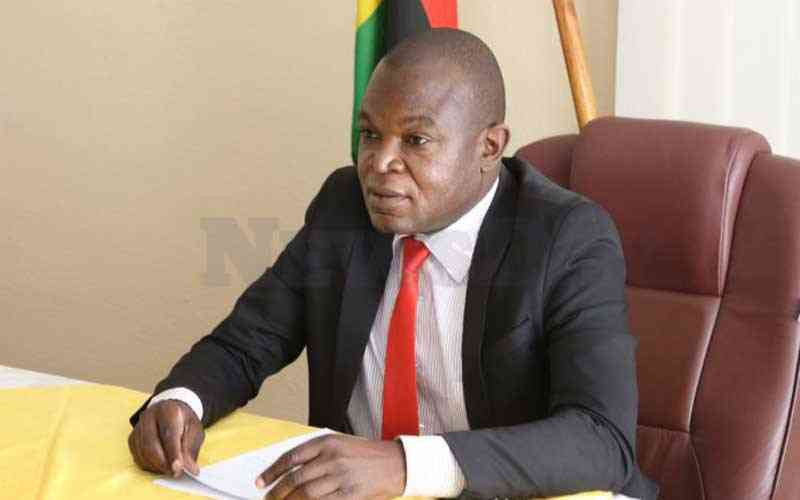
ZIMBABWE has recorded a staggering 16 444 cases of gender-based violence (GBV) and 31 deaths since January this year with men cited as the main perpetrators.
Speaking during a media workshop organised by the Media Institute of Southern Africa (Misa) Zimbabwe on 16 days of activism against GBV in Harare yesterday, national police spokesperson Senior Assistant Commissioner Paul Nyathi said there was urgent need to address the scourge.
“In the year 2022, we had 26 females who were killed by their partners. This year, we have 31 killed,” Nyathi said.
“The issue of domestic violence is so real and as we move towards the end of the year, the Commissioner-General of Police [Godwin Matanga] will present his report mid-January and we will see how the figures would be.”
He said men were the primary perpetrators of violence.
“From January to October 2023, we received about 16 444 cases where females have been abused and 2 463 cases where men have been abused. So basically, the girl child and females are victims of violence,” he said.
Nyathi also raised concern over journalists and other women victims not reporting cases of sexual harassment at their workplaces.
“Those who reported actually fear for their careers, marriages and what their peers are going to say in the media industry,” Nyathi said.
- Churches best positioned to deal with GBV
- The style interview: Tozeza Baba addresses gender-based violence
- Traditional leaders should front GBV fight
- GBV survivors share horrific stories
Keep Reading
“So, at the end of the day the victims are not free and as a result this perpetuates a culture of sexual harassment in the newsroom.
“Even our young journalists when they are doing their duties with the sources, they are at risk of being harassed by these politicians etc. So, they need to be protected.”
Speaking at the same event Women Affairs minister Monica Mutsvangwa said the government remains committed to preventing and reducing violence against women and girls.
“As such, my ministry continues to coordinate efforts towards addressing GBV through various interventions, particularly by ensuring that the legal and policy frameworks are strengthened and are protective of women and girls,” Mutsvangwa said.
“We continuously collaborate with different stakeholders that include the government, civil society, development partners, traditional and religious leaders and the private sector in efforts to prevent and respond to GBV through a whole of government and whole of society approach.”
She said the government was coordinating the review of the National Strategy for Preventing and Addressing GBV, a strategy document that will provide guidance towards GBV programming.
The strategy is expected to be launched this month.
Misa Zimbabwe chairperson, Golden Maunganidze, said the organisation was taking measures to ensure that women freely exercise their freedom in the media sector.
“However, as you may all know, at Misa we take issues of freedom of expression very seriously — we, therefore, found it fit to take this opportunity to hold this event with the hope that it will mark the start of well-co-ordinated efforts to, not only publicise Resolution 522, but also to take concrete steps towards preventing and eradicating digital violence against women, particularly female journalists in our motherland,” Maunganidze said.
Zimbabwe Union of Journalists secretary-general Perfect Hlongwane, said there was need for media houses to put in place measures that protect women from sexual harassment.
“We need to have an independent board that is going to make sure that it takes appropriate disciplinary action against perpetrators,” he said.
“We need to create safe spaces for female journalists and also spaces to ensure that they also take up top leadership positions.”
Gender and Media Connect executive director Patience Zirima said about 48% of female journalists were being violated online.
In a statement to mark the 16 Days of Activism Against Gender-Based Violence, Justice minister Ziyambi Ziyambi said GBV disproportionately affects women and girls.
“My ministry recognises the gravity of this problem and has implemented programs to combat it while enhancing access to justice for GBV survivors,” Ziyambi said.
“Their goal is to ensure that survivors receive the necessary care and assistance required for their recovery and the rebuilding of their lives.
“Our approach as a nation, therefore, entails tackling GBV through evidence-based strategies tailored to the specific needs of survivors, emphasising the promotion of gender equality, social justice, and human rights.”
Ziyambi said the government had tightened laws against GBV by criminalising child marriages through the Marriages Act, while pushing for the criminalisation of sexual activities with minors under the age of 18.
He said the government had also established specialised courts and support services with necessary resources and assistance to provide assistance to all marginalised communities in Zimbabwe.










